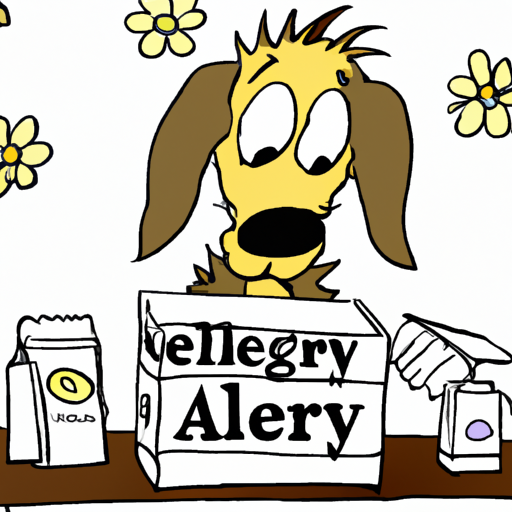As a caregiver, you are the first line of defense in safeguarding the health and wellbeing of your loved ones, and this includes your furry friends.
Understanding Dog Allergies
Just like humans, dogs can also suffer from allergies. These allergies can be triggered by a variety of factors, such as food, pollen, mold, dust, fleas, and certain types of fabrics. The symptoms of allergies in dogs can range from mild to severe and can include itching, redness, swelling, and gastrointestinal problems.
To help you navigate through the challenges of dealing with dog allergies, let’s explore some of the things you can give your dog to alleviate their allergy symptoms.
Food Allergies in Dogs
Food allergies are relatively common in dogs. They can be triggered by various foods, including beef, dairy, wheat, eggs, chicken, lamb, soy, pork, rabbit, and fish.
To help your dog manage their food allergies, consider the following:
-
Hypoallergenic Diet: Feed your dog a diet that is free from the allergens that trigger their allergies. This could mean switching to a grain-free diet or a diet that is free from certain proteins.
-
Probiotics: Probiotics can help to support your dog’s gut health, which can in turn help to manage their food allergies.
Environmental Allergies in Dogs
Environmental allergies in dogs can be triggered by a variety of factors, including pollen, dust mites, mold, and certain types of fabrics.
Here are some things you can give your dog to help manage their environmental allergies:
-
Allergy Medications: There are various over-the-counter and prescription medications that can help to alleviate your dog’s allergy symptoms. These include antihistamines, corticosteroids, and immunosuppressive drugs.
-
Allergy Shots: Allergy shots, also known as immunotherapy, can help to desensitize your dog to the allergens that trigger their allergies.
Flea Allergies in Dogs
Flea allergies, also known as flea allergy dermatitis, is one of the most common skin conditions in dogs. It is caused by an allergic reaction to flea saliva.
To help manage your dog’s flea allergies, consider the following:
-
Flea Treatment: Use a flea treatment product to keep your dog free from fleas. This could be a flea collar, a topical treatment, or an oral medication.
-
Regular Grooming: Regular grooming can help to remove any fleas that are on your dog’s body.
FAQs
Q: Can I use human allergy medication for my dog?
A: While some human medications can be used in dogs, it is always best to consult with your vet first.
Q: How can I prevent my dog from getting allergies?
A: While it is not always possible to prevent allergies, you can minimize your dog’s exposure to allergens by maintaining a clean environment, feeding them a healthy diet, and keeping them free from fleas.
Q: How can I tell if my dog has allergies?
A: Common symptoms of allergies in dogs include itching, redness, swelling, and gastrointestinal problems. If you notice any of these symptoms in your dog, it is best to consult with a vet.



